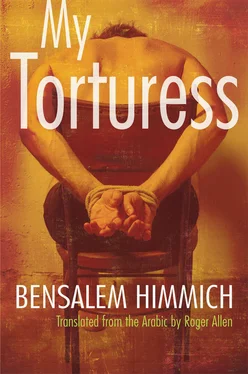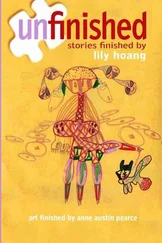1
Oh yes, my gracious Na‘ima, may God be gracious to you and comfort you!
Since returning to my homeland, I’ve chosen to live on the Angad Plain, a hilly farming area with clean air, fresh, pure water, the sounds of birds, domestic and farm animals, and a sweet refreshing breeze that blows in from the Bani Sanasin hills. It is springtime, and the whole scenario coalesces in a way that manages to distract me, if only from time to time, from the horrendous years of imprisonment and the physical and psychological injuries I have suffered.
A genuinely pious and generous man, Hamdan al-Mizati, who owns the farm where I am staying, has arranged for me to be looked after by a widow and her unmarried daughter. They are taking good care of me and feeding me nourishing food and various herbs. Thanks to the ministrations of these two women, I have been able to resume my normal sleep by gradually ridding myself of the patterns of nightmare and sleeplessness that afflicted me in prison. For a whole month I have managed to spend daylight hours in the shade of a spreading leafy oak tree, while the evenings have been spent by lamplight in the wide-open house, committing to paper the chapters of my prison narrative and recalling as far as possible all the painful memories and residual consequences of such a physical and psychological trauma.
Between prayers, and especially in this wonderful month of Rajab, I find that my mind catches fire and my talents explode into creativity. By means of my pen, words and images move from my tongue to the page. Whenever I rest or eat something, my hostess, Khaduj, and her daughter, Zaynab, ask me what I am doing. When I give them some snippets, the mother throws her head covering to the floor and launches into a tirade of prayers against the tyrannical monsters who have committed such things against me, while the daughter’s reddened eyes weep copious tears, which I hasten to wipe away, either with my handkerchief or my hand.
One fine day I decided to sit in the hollow at the top of the oak tree and put the finishing touches to my manuscript with some editing and corrections, all to the accompaniment of the fascinating logic of the bird population. I did just that, but I had hardly involved myself totally in my task before I had to stop, having noticed Zaynab running hither and yon, like a gazelle that has gone crazy. She kept yelling my name and begging me to show myself. Her mother kept telling her to calm down and control herself. When I scrambled down the tree, Zaynab rushed over to me, panting and out of breath, and looked at me with tear-filled eyes. It has been ages now since I have come across anyone with warmer and deeper feelings than hers. As she ran away, I saw her mother coming towards me with my breakfast tray.
Once I had finished work on my manuscript, I folded it up and put it in a box. I told Khaduj that I wanted to use her mule to go into Oujda and deal with some urgent business. She and Zaynab both prepared a travel pack for me and stuffed it with food, baskets of vegetables, and fruit for me to give the jurist, al-Mizati. As they both said farewell, they made me promise not to stay away too long. I went on my way, feeling free and easy; with my beard duly clipped; I was wearing a jallaba and a turban on my head.
The five days I spent in the city were filled with activity and success. First thing, I went to the blood laboratory, where I gave some blood so I could check on my immunization status. I then headed for the dental clinic, where my few remaining decayed teeth were extracted with anesthetic. I was promised a new set of false teeth made to measure so I could forget all about my messed-up mouth.
I spent that same night in my bookstore, using candlelight to collect the books that I could save, ones that had not been eaten by mice and bookworms. I put them all in a box that still preserved some of my personal possessions, clothes, and civil-status documentation. That done, I did my ablutions and said the prayers before surrendering to sleep, still dressed in my jallaba .
Next morning, I woke up with a start, having just emerged from a nightmare in which all the personnel in my terrible prison experience and all the dreadful events had followed one another in relentless succession. I leapt up and made for the mosque, where I performed the ablutions again, prayed the dawn prayer, and asked God for guidance. None of the other worshippers knew who I was, and the same thing applied to passersby when I exited the mosque. My traditional garb, my graying beard, and the years I had been away all combined to make me seem a stranger or a new arrival in the city. For my own part, I barely recognized anyone as I made my way through the markets, bazaars, and other crowded places. People had changed: health problems, the inexorable advance of time, and old age had all had their effects, but this was all part of God’s practice with His creation — and to that there was no alternative.
I hastily ate my breakfast and then headed for the blood laboratory to get the results of my test analyses. I asked the senior nurse to reassure me that I did not have AIDS, and she told me that everything was fine; that made me very happy, needless to say. Once I realized that God had saved me from the dire ministrations of the female ghoul and that the way now lay open for me to get married, I kissed her hand. Now there was no need to hold back or delay, particularly in view of the fact that I had wasted many years in prison and was now close to fifty years old. As evening fell on my second day in Oujda, I went to visit the home of the virtuous jurist, Hamdan al-Mizati, and broached precisely this topic. As I did so, I handed him the basket of food from the woman who, I hoped, would become my mother-in-law. His face immediately lit up, and he told his wife to prepare dinner.
“By God, my boy,” he told me, “your intentions show that what your plan is indeed an act of charity. You’ll be sheltering and looking after a good woman; you’ll care for her and she for you. You will enhance your religion with a God-sanctioned marriage. Yesterday an official from the Angad region came and asked me why you were staying on my farm. The things I told him set him back on his heels, and he apologized profusely. But now that you’ve made this decision, you don’t have to worry about him or anyone else.”
He noticed that I was hesitating before saying something else. But just then his wife came in to welcome me and offer congratulations, and I stood up to greet her. After setting a number of plates on the table, she told me that her husband, the Hajj,* had told her wonderful things about me and I was to treat their home as my own.
“I have two sons,” the jurist continued after she had left. “One died in obscure circumstances, and the second travels a lot to apply his modern knowledge and experience. So you can take their place as my son. But eat something first, then you can tell me what’s worrying you.”
I ate a little, then wiped my hands and mouth.
“May God give you a good reward, Hajj, for everything you’re doing for me. But as soon as I’m married — through God’s almighty power, I have to find a decent job so I can live by it and look after my family. My idea is to sell you my bookstore so I can use the money to buy part of your farm or some other tract close by. I don’t like living in the city and feel claustrophobic. That’s what prison has done to me, and the complaint about that needs to be directed to God. I can only see myself breathing freely in the countryside, tilling the soil, sowing seeds, and reaping the harvest that results. Something else is on my mind as well: I’ve completed my testimony about the prison. How can I get it published so that it gets to the people who matter?”
Читать дальше












